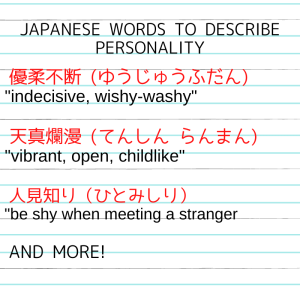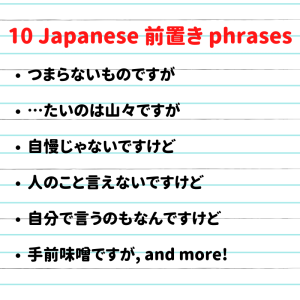Table of Contents
Pronunciation
Definition
後の祭り (あとのまつり, ato.no.matsuri) is an idiomatic expression that literally means ‘post-festival’. Figuratively, it indicates that it is no use regretting the past; you can’t enjoy food stalls and live music anymore after a festival is over*. For instance, if you regret not studying hard after the exam is over, that’s 後の祭り. It is also used to describe when an action or event is too late. For instance, it is 後の祭り even if you say to your partner a million times, ‘Sincerely I love you.’ after you ‘accidentally’ called him/her by the name of your ex.
* In fact, there are a few other theories in its etymology. One of them claims that 後の祭りwould refer to the second-half period of Kyoto Gion Matsuri, one of the largest festivals in Japan that lasts for about one month. The festival is usually more boisterous during the first-half period than during the latter, and the idiom may refer to the idea that it’s no use or too late to attend the festival after the main part is over.
Similar Phrases in English
In English, idiomatic expressions similar to 後の祭り include, ‘the ship has sailed’, ‘shut the stable door after the horse has bolted’ and ‘cry over spilt milk’. The closest English phrases are ‘(something is) too late’ or ‘no use regretting something in the past’.
Example Sentences
(1) あの時告白しておけば良かったと言っても、後の祭りだ
Even if you say you should’ve confessed your feelings at that time, that’s ‘post-festival’ (it is no use regretting about it).
cf. the post about 告白する or 告る (Kokuru): Japanese Slang ‘Confess Your Feelings to Your Crush’
(2) 彼があなたに興味があったって事に今頃気がついても、もう後の祭りよ。彼にはもう彼女がいるんだから。
Even if you’ve just noticed he was interested in you, that’s ‘post-festival’ (too late), because he has a girlfriend now.
Synonyms
Synonyms 手遅れ (ておくれ), 後悔先に立たず (こうかいさきにたたず)、覆水盆に返らず (ふくすいぼんにかえらず)
Synonyms in English: too late, no use regretting the past
Related Word: 後 (あと) post, 祭(まつ)り festival



Ever since I started studying Japanese, I’ve wondered why it isn’t 「祭りの後」 instead of 「後の祭り」
Yea, actually if you associate this idiom with the post-festival atmosphere, “祭りの後” would sound more appropriate than 後の祭り. On the other hand, 後の祭り can make more sense if you look at the other theory of its etymology described in the post: “後の祭り would refer to the second-half period of Kyoto Gion Matsuri”. Here, the first-half period is referred to as 前の祭り and the second-half as 後の祭り. As none of the theories has been validated, I used the first theory to explain this idiom for simplicity.